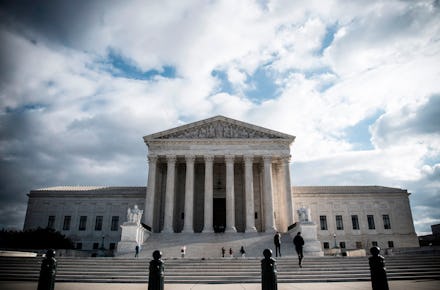Could a Louisiana law bring the undoing of 'Roe v. Wade'?

At the beginning of 2020, both the Trump administration and more than 200 Republican members of Congress asked the Supreme Court to consider overturning Roe v. Wade. Roe's legal precedent establishing the constitutional right to have an abortion is relevant to a case the Court will hear this spring: June Medical Services v. Gee. It's a case that potentially could have significant ramifications for abortion access in the United States — and anti-abortion advocates hope it will chip away at Roe itself.
The core of the June Medical Services case is Louisiana's Act 620, a 2014 law which required that any physician who performs an abortion must have "active admitting privileges at a hospital that is located not further than 30 miles from the location at which the abortion is performed or induced."
A similar law, Texas's HB2, was struck down by the Supreme Court just four years ago in 2016. Citing the 1992 case Planned Parenthood v. Casey, the Supreme Court said the admitting privileges requirement of HB2 imposed an "undue burden" on a person's right to access an abortion.
So when it comes to June Medical Services, "really, the Court shouldn’t be hearing the case," Jennifer Weiss-Wolf, vice president of development and the women and democracy fellow at the Brennan Center for Justice, tells Mic. "It has already determined that an identical law serves no medical benefit and is intended to delay or eliminate access to abortion. We’re owed a straightforward decision that the law is unconstitutional."
However, Louisiana state Rep. Katrina Jackson argued in a post on Louisiana Right to Life's website that her state's law is different than Texas's because the Texas law also included a provision that abortion facilities meet ambulatory surgical center requirements. Act 620, she wrote, does not. "Not only is Louisiana’s law materially different, but the geography and population difference between Texas and Louisiana presents separate facts that should be considered independently from the Whole Woman’s Health v. Hellerstedt decision," Jackson argued, referring to the 2016 case. "The driving distance between abortion facilities with admitting privileges is much different than in Texas, reducing the argument that the law is an undue burden on a woman’s right to choose."
"The facts, the law — and the Constitution — have not changed since 2016. Only the makeup of the Court has."
The Supreme Court decision on HB2, however, specifically noted that both the admitting privileges and ambulatory surgical center requirements on their own created an undue burden. "Each places a substantial obstacle in the path of women seeking a pre-viability abortion, each constitutes an undue burden on abortion access, and each violates the federal Constitution," the majority opinion read.
So what state lawmakers, Republican members of Congress (plus two Democrats), and the Trump administration are asking the Supreme Court to do is overrule itself. "The Court has exercised that judgment to overrule precedent in over 230 cases throughout its history," the lawmakers wrote to the Court in their letter about Roe.
That's true. It's certainly possible for the Supreme Court to overturn precedent — but it is exceedingly unlikely. According to a Quartz analysis from last July, in its entire existence, the Supreme Court has overturned precedent just 236 times. From 1946 to 2016, a period of 70 years, it overturned 75 decisions out of more than 8,800 — less than 2% of its rulings.
However, just because it's been unlikely to overturn precedent in the past doesn't mean it's impossible. There's a key difference between now and when the Whole Woman's Health case was decided. "The facts, the law — and the Constitution — have not changed since 2016," Weiss-Wolf says. "Only the makeup of the Court has."
In 2016, when the Court decided Whole Woman's Health, the Court was made up of Chief Justice John Roberts and Justices Anthony Kennedy, Clarence Thomas, Ruth Bader Ginsburg, Stephen Breyer, Samuel Alito, Sonia Sotomayor, and Elena Kagan. There were only eight justices at the time, as Antonin Scalia had recently died.
Since then, Kennedy, who was known as the swing vote on the Court, has retired. Neil Gorsuch succeeded Scalia after his death, and he was sworn in as a justice in April 2017. Brett Kavanaugh succeeded Kennedy and was sworn in after contentious confirmation hearings in 2018. This has shifted the ideological leanings of the Court to be more conservative, so it is more than possible that a majority of justices will find a way to pare down the precedents set by Roe v. Wade, Planned Parenthood v. Casey, and Whole Woman's Health v. Hellerstedt. The Court may not overturn any of the precedents entirely, but if it allows the Louisiana law to move forward, that will contribute to a lack of abortion access.
"The reality is that laws like this are intended to make Roe irrelevant," Weiss-Wolf says. "Even if the right to abortion technically exists, it won't matter if ... places to get abortion care are eliminated."